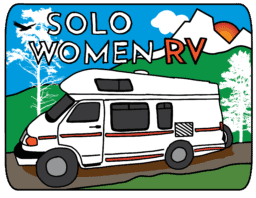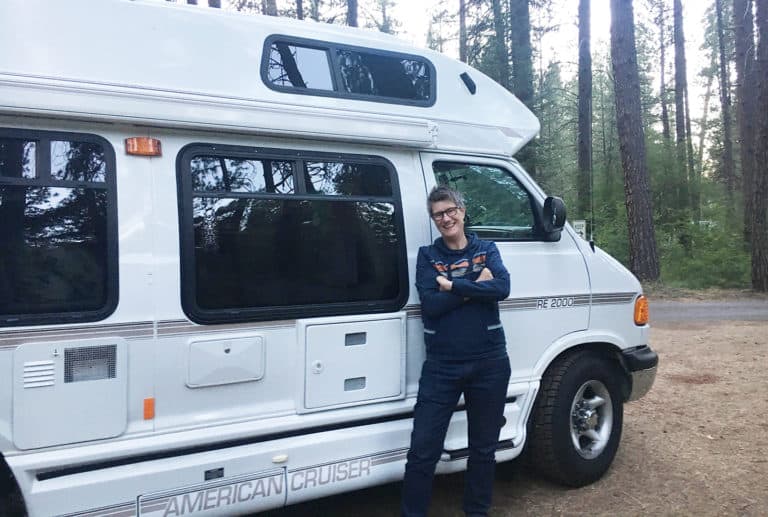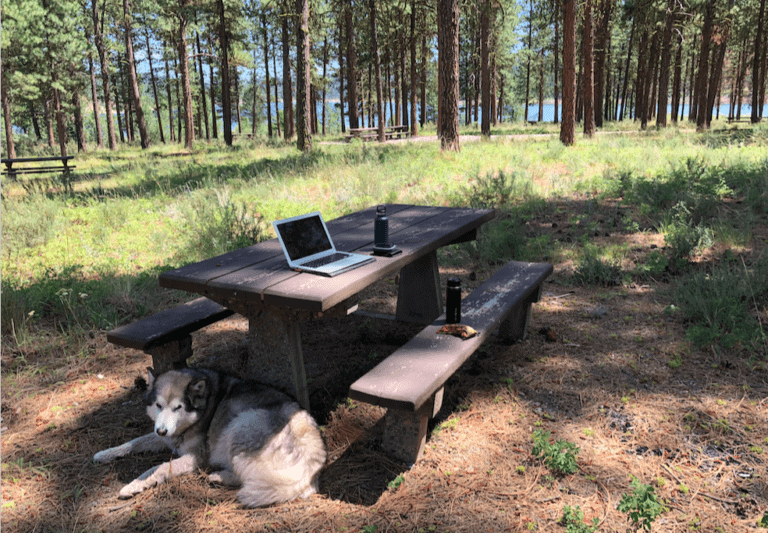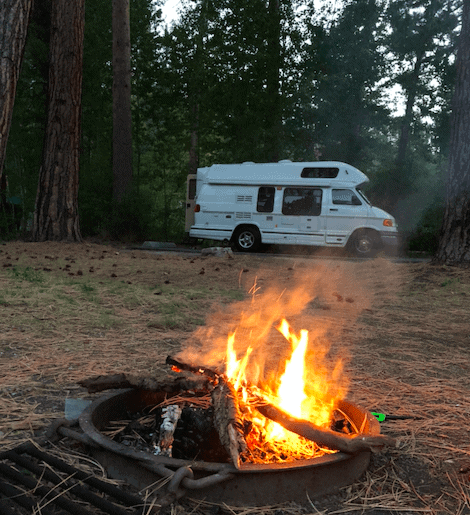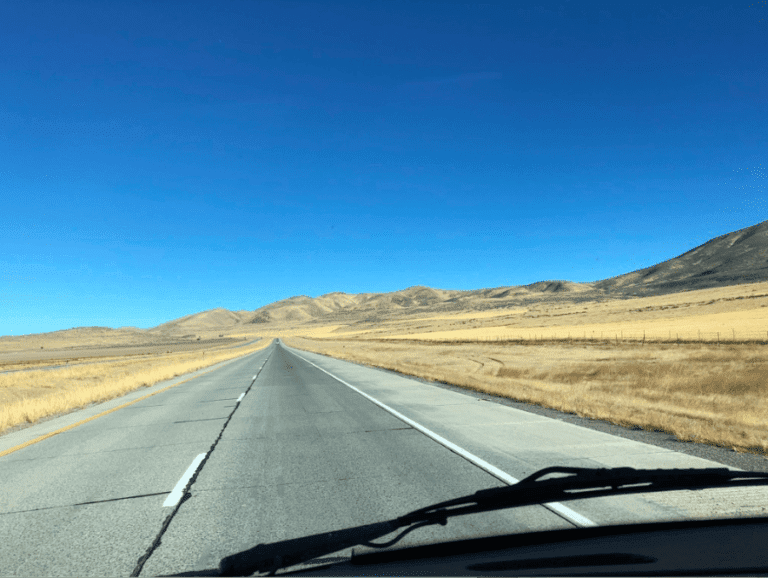10 Things to Plan For Before Your RV Breaks Down
What to do if your Van or RV Breaks Down on the Road
As a solo RV traveler, one of my biggest fears has been my RV breaking down. I know that breakdowns are an expected part of RV life, but they can be scary and dangerous. Having to deal with a breakdown as a solo traveler can be extra stressful. But if you plan for an RV breakdown beforehand, you can eliminate some of the anxiety. Here’s some things you can do before your RV breaks down.
I’ve had two breakdowns in my RV since I’ve owned it. My van is over 20 years old, so breakdowns are to be expected. Actually, any age RV can have a breakdown and sometimes the newer ones have more issues than the older models. Even though my breakdowns were stressful, I found that I was able to deal with them because I was prepared.
My most recent breakdown happened hundreds of miles from home or anyone I know. I was visiting Yellowstone National Park when I started to notice my van was not accelerating over the mountain passes and didn’t seem to be shifting gears properly. My wishful thinking had me hoping that it was simply the high altitude causing the motor to not run smoothly. But no such luck.
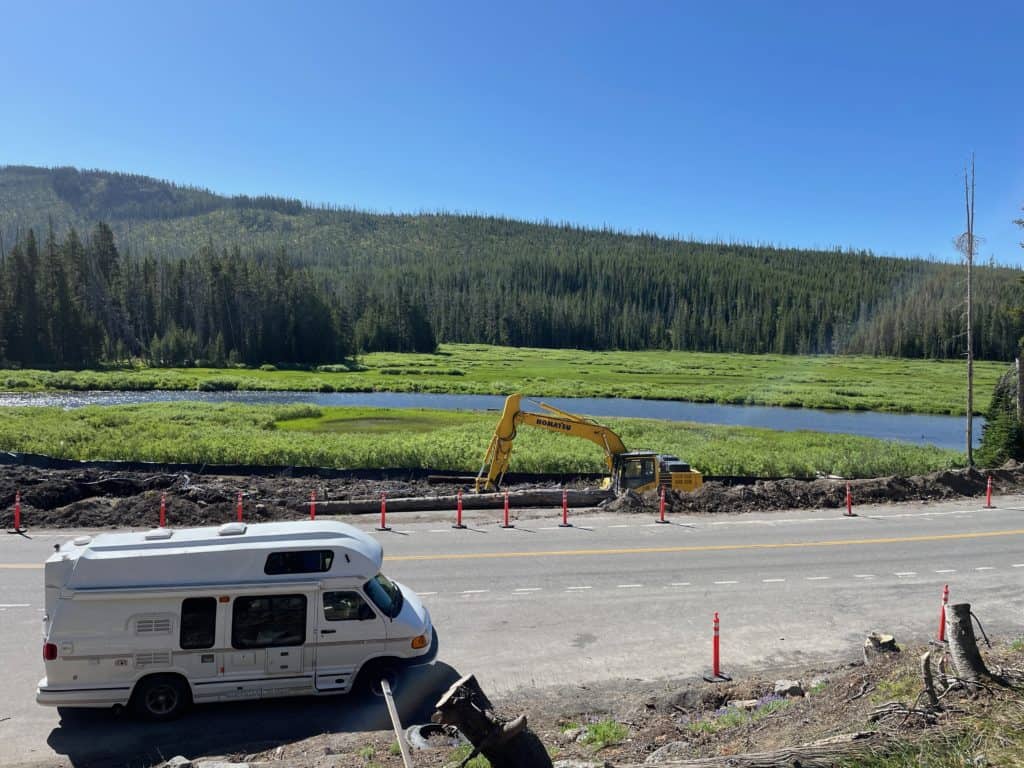
I was on my way out of the park and pulled over to look at a waterfall—Lewis Falls, actually. When I got back into my RV, it wouldn’t start at all. To make matters worse, I was completely out of cell phone range. A few fellow tourists stopped to also look at the waterfall and none of them had cell service either. Someone offered me a ride, but since I travel with my bicycle, I decided to ride that up to the nearest ranger station, four miles away. Once there, I discovered that they too, had no cell service. But one of the rangers gave me a ride to the nearest service station with a tow truck. That was one way I was prepared for a breakdown. I travel with a bicycle and know that I can use it if I ever need to get somewhere in an emergency. In the end, it all worked out well.
I got my vehicle serviced and in good enough working order to get me back to my hometown where I had it repaired.
A break down is never pleasant and can sometimes be scary, but all-in-all, because I was prepared and had a good attitude about it, things went as smoothly as they could.
Here are my tips for things to do to prepare for if your RV or van breaks down as a solo traveler.
1. Anticipate a Breakdown
One of the ironic things about my breakdown, was I was just listening to a podcast about breakdowns being a normal part of the RV experience just before I broke down! Yes, breakdowns are to be expected, so you should be prepared. Before I had either of my breakdowns, I planned some scenarios in my head. What would I do if I broke down in an area with no cell service? Where would I have my vehicle towed, if it needed it? What tools and accessories should I have onboard?
In my case, I imagined that if I broke down in an area with no cell service, I would ride my bike to the nearest area with coverage. And that’s exactly how it played out in Yellowstone. Think through what you would do in certain scenarios and get the proper tools on hand.
- Safety Cones will be handy if you break down on a busy road or highway.
- An emergency jump start is perfect for any time your battery runs down. I purchased this at the suggestion of another camper. I haven’t used this it my own rig, but I did use it to help someone in a campground once.
- RV tow insurance is a great idea and will likely save you lots of money. I personally have two plans: one through AAA and one through my insurance company. Double check that the plan covers RV tows, as they are often more expensive and require special equipment
- Have an idea of where you will stay if your RV needs a day or two in the shop. I’ve got some credits saved up from Airbnb to use in case of emergency. Sometimes shops will let you camp on their property (like I was able to do in Yellowstone) but that is not always the case. If you travel with a pet, this can get more complicated, so make sure you think it through
2. Get to a Safe Location as Soon as You Can
You will likely hear your motor start sound funny or have some indication that things are not right before your RV actually stops running. Or even if it cuts out on the highway, like mine did when my fuel pump died, you should have enough momentum to get to the shoulder of the road. Do so as quickly and safely as you can. If possible, get off a busy road all together, because chances are, you’ll be waiting a long while for help to show up. Set up emergency cones, if you have them.
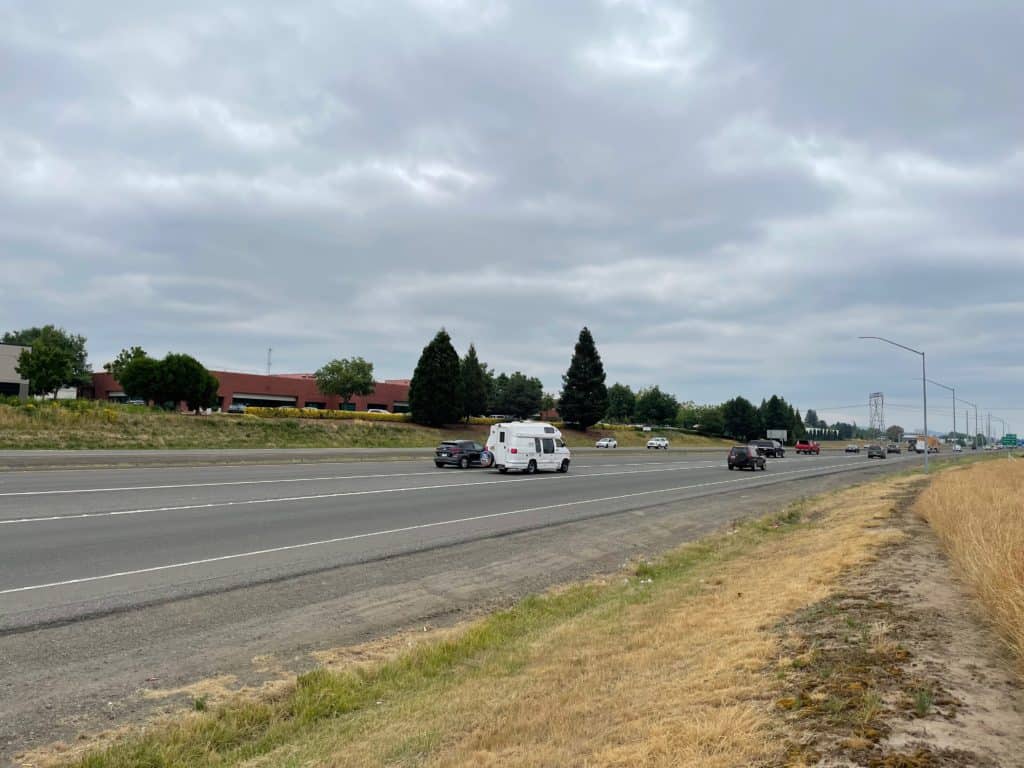
3. Assess the situation
If it’s safe to do so, get out and see if you can determine what is going on. If there are flames or smoke, move away from the vehicle as quickly as you can and call 911. If it seems like traffic is really whizzing by and you don’t feel safe, stay in your RV with your seatbelt on and call for help. But if it’s safe, investigate what’s wrong. Sometimes what is happening is obvious, even if you’re not mechanically inclined. A snapped belt or radiator leak should be easy to spot and can be information you can share with the emergency roadside assistance service.
4. Have RV Towing Insurance
I’ve had AAA since I was in college. I was always driving some beater car that would inevitably break down. I’ve kept AAA, even though I drive newer cars now. When I got my RV, I upgraded to the AAA RV Plus membership. There are other towing services, so do your research to determine which is best for your needs and the type of RV you travel in. I also have RV towing coverage through my auto insurance company. There are a lot of companies that offer it. Make sure you have emergency roadside insurance, no matter how new your RV is.

5. Know Where You Want to Go if Your RV Breaks Down
If you break down in a place where you’ve never been and don’t know anyone, you might have to do some research to find a place that you want to be towed to. The tow truck driver might have a suggestion, but you might be better off if you can do a little research yourself. Oftentimes RV parks know good mechanics that they can recommend. Even if you haven’t stayed in an RV park near where your breakdown is, do a quick online search for RV parks and see if you can get someone on the line. I’ve also seen people post to Facebook groups when they’re broken down to see if others know resources in the area. There are a lot of women’s RV and vanlifer groups with thousands of members happy to help.
6. Consider Mobile RV Repair if Your RV Breaks Down
If you happen to break down in a campground or parking lot or boondocking spot, you might consider calling a certified mobile RV repair person. Again, you can ask a campground if they have a business to recommend. Or you can simply check Google or the online Yellow Pages. Be sure to read online reviews. If you’re in a campground, be sure to check with the host, as sometimes they don’t allow repair work inside the park, as they consider it a nuisance to other campers.
7. If the breakdown causes an accident—what to do
If your breakdown is the result of an accident, there are a few additional things you’ll need to do. First of all, you’ll need to make sure everyone is all right and collect insurance information, license plates and names from the other drivers involved in the accident. Take photos of the damage to your vehicle and the others. You’ll probably need to contact your insurance company before you leave the scene and you may also need to file an accident or police report. No matter how minor the damage to your rig, make sure to get it inspected by a professional to ensure your RV is safe to drive.
8. Set Some Money Aside for Repairs
Part of your planning for RV travel is to be prepared for the unexpected. I highly recommend having money set aside for RV repairs and emergencies. My latest repair has set me back a few thousand dollars. While I have the money in the bank, it was money I had planned to use for travel, so now I’m looking for some gig work to help make it up before I hit the road again.
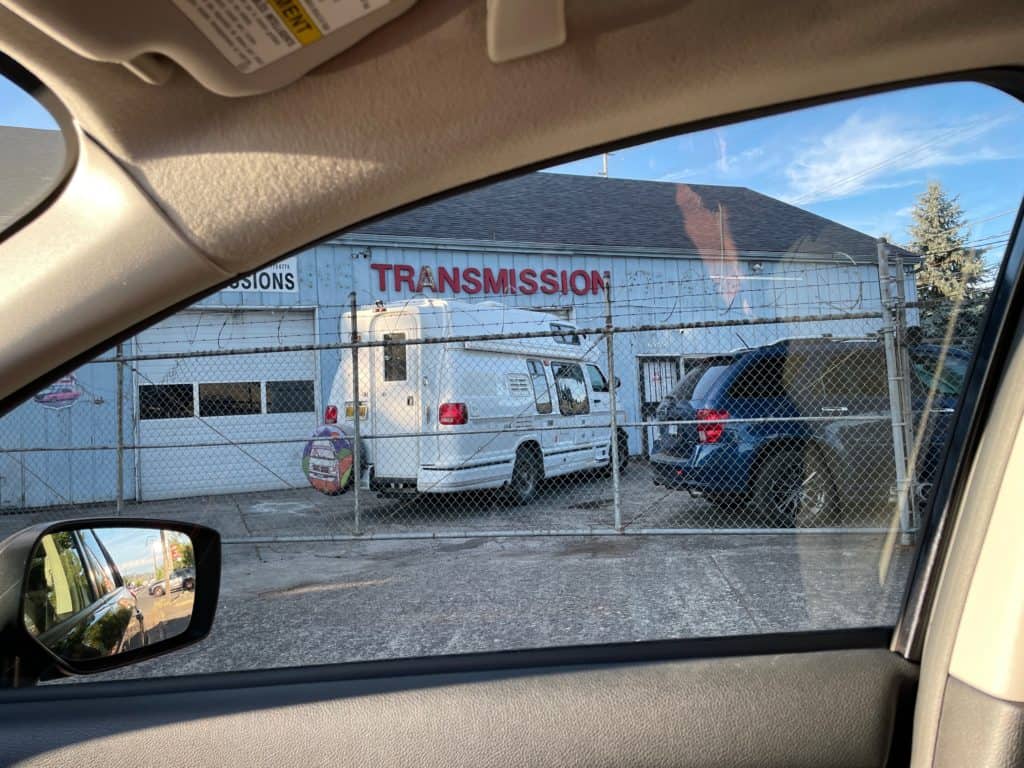
9. Figure Out Where You Will Stay when your RV Breaks Down
If your RV needs to be in the shop for a few days, you’ll need to make arrangements for a place to stay. Again it’s good to have some money set aside for this. If you travel with pets, like I do, you’ll need to find a place that will allow you to bring your pet.
Sometimes a service station will allow you to sleep in your RV on their property, but you shouldn’t count on it. Some don’t allow it, or local ordinances may prevent it. Always have a plan B.
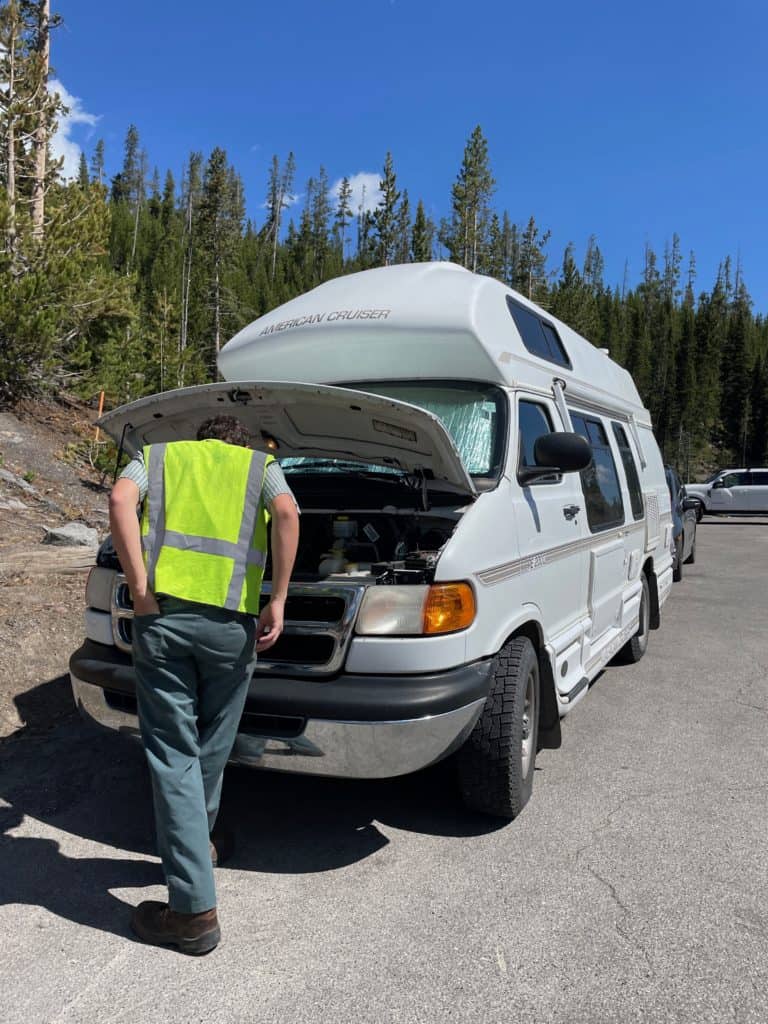
10. Make the Most of It!
As I state at the beginning of the article, breakdowns are an expected part of RV travel. Your attitude about them can make all the difference in the world. What can you do to make the most of it? Find yourself in a town you didn’t plan on visiting? Hang out in a local coffee shop or diner and get to know the area. Visit a local museum, have a meal or take a long walk.

